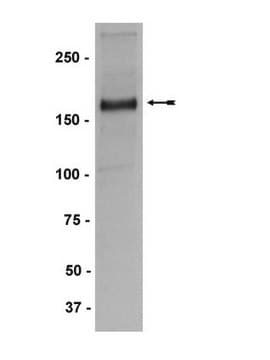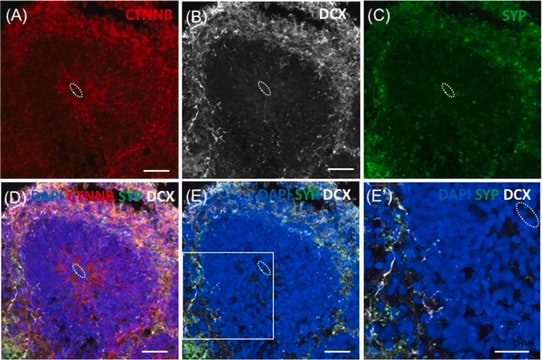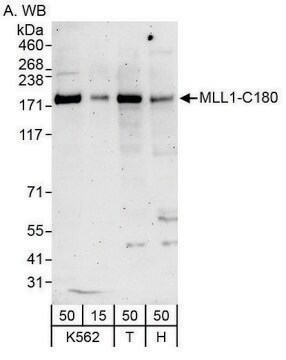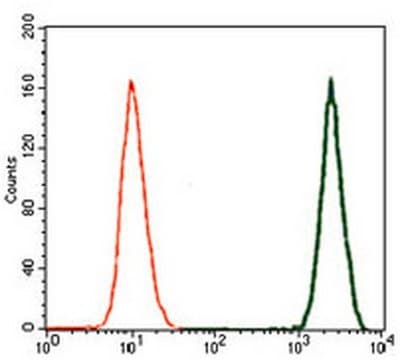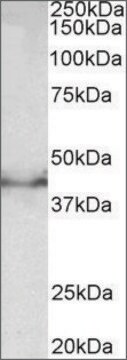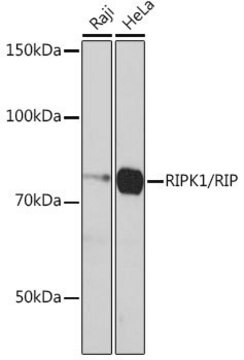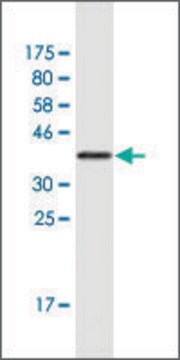05-764
Anti-MLL/HRX Antibody, NT., clone N4.4
clone N4.4, Upstate®, from mouse
Synonym(s):
Anti-ALL-1, Anti-ALL1, Anti-CXXC7, Anti-HRX, Anti-HTRX, Anti-HTRX1, Anti-MLL, Anti-MLL1, Anti-MLL1A, Anti-TRX1, Anti-WDSTS
About This Item
Recommended Products
biological source
mouse
Quality Level
antibody form
affinity purified immunoglobulin
antibody product type
primary antibodies
clone
N4.4, monoclonal
species reactivity
mouse, human
manufacturer/tradename
Upstate®
technique(s)
immunoprecipitation (IP): suitable
western blot: suitable
isotype
IgG1
NCBI accession no.
UniProt accession no.
shipped in
wet ice
target post-translational modification
unmodified
Gene Information
human ... KMT2A(4297)
General description
Specificity
Immunogen
Application
Quality
Target description
Physical form
Other Notes
Legal Information
Not finding the right product?
Try our Product Selector Tool.
Storage Class Code
10 - Combustible liquids
WGK
WGK 1
Certificates of Analysis (COA)
Search for Certificates of Analysis (COA) by entering the products Lot/Batch Number. Lot and Batch Numbers can be found on a product’s label following the words ‘Lot’ or ‘Batch’.
Already Own This Product?
Find documentation for the products that you have recently purchased in the Document Library.
Our team of scientists has experience in all areas of research including Life Science, Material Science, Chemical Synthesis, Chromatography, Analytical and many others.
Contact Technical Service